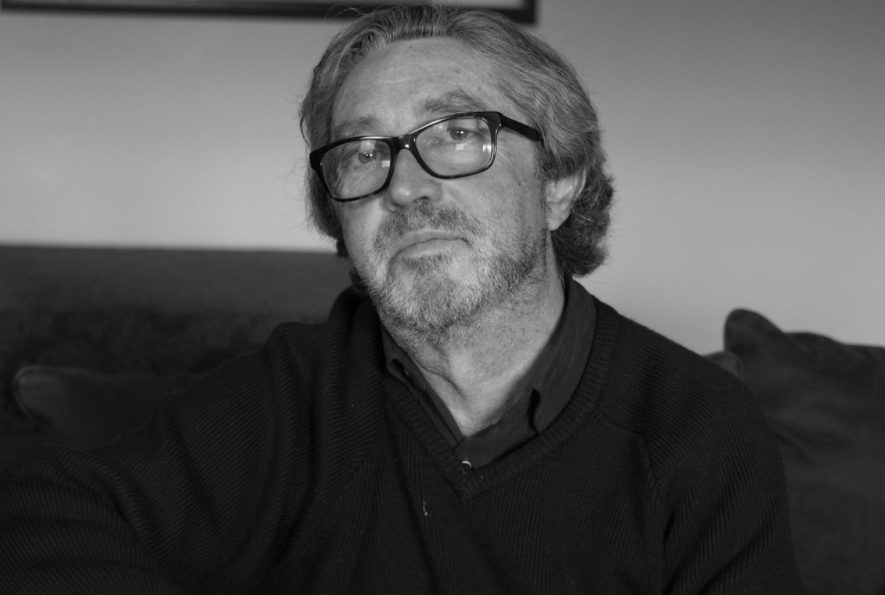This week, I’ve invited fellow author Ken MacQueen to sit in. For those who don’t know Ken yet, he’s an award-winning magazine and newspaper journalist turned thriller writer. He’s traveled the globe, met with royalty, covered nine Olympic Games, reported on all manner of political events, crimes, trials, terror attacks and oil spills. Now, turning his talents from fact to fiction, he’s written his debut thriller, Hero Haters, released in October by Wild Rose Press of New York. A book that’s highly charged and highly recommended.
Ken: Answering the first of this two-parter is easy. Hell, yes, decades of journalism is the best apprenticeship imaginable for an author. The parade of characters that I came across—venal, weird, aggrieved, sad, ambitious, sweet and all things in between—stand shuffling in my subconscious like I’ve conscripted them into a police lineup.
It’s a ‘round up the usual suspects’ thing. If I want evil, I might draw on the hours I spent in courtrooms with serial killer Willy Pickton or Paul Bernardo and his twisted wife Karla Homolka. If I want sweet tinged with sadness, there’s this dear octogenarian from Victoria I spent an afternoon with. She was in reasonable health, but she was determined to die before that changed. I pointed to the flowers and plants in her sunny backyard, and leave this behind? Oh, not today, dear, she said. Weeks later, I read her obituary in the local paper.
I have the luxury of building characters from bits of this and that, like an identikit. I’m writing this with John Sandford looking over my shoulder. Beside him in the photo is me, grinning like an idiot. We met briefly at Thrillerfest. Sandford, birth name, John Camp, won a Pulitzer Prize for his newspaper journalism back in the 1980s.
I’m a huge fan of his Prey series and his spin-off Virgil Flowers and Letty Davenport characters. Sandford credits journalisms for all the strange situations he was thrust into, the research skills he applied, and the cops, crooks and characters he met along the way. Listen to Virgil and Lucas and Letty speak, they are sharp, street-smart, and a touch cynical. The humour is dark, the way cops talk, and soldiers, and journalists. It keeps the bleakness at bay, and makes for wonderful dialogue. You don’t learn that in a Masters of Creative Writing program.
Well, maybe you do. I never went to university. So, the very idea of me creating an academic course is akin to, say, turning over the presidency to a sociopathic, attention-addled serial liar. I mean, it would just never happen. Right?
But, Dietrich, you asked, so here’s my advice. My syllabus would read something like:
(Un)academic Writing, 101: Express your innermost thoughts in words of two syllables or fewer. The use of three-syllable words or greater, requires written permission of your professor. Your written request will fail if it contains words of three syllables. The use of footnotes is also expressly forbidden.
Writing within the bounds of your ‘Lived Experience,’ 101. [Ha-ha. Put that stupid course description in to sneak it past the Dean.] The course is actually called Writing to Mess with Your Head and Those of Others. Conjoining ‘lived’ and ‘experience’ in the same sentence is an automatic fail, ibid footnote prohibition above. Also loc. cit., op.cit., infra, supra and viz. [The Dean is crazy for Latin abbreviations.]
Making Up Shit, 101. Well, it is a fiction course.
A prerequisite for You Can’t Make Up This Shit, 201. Exploring reality. Tools for the unimaginative.
The Elimination of Excessive Verbiage in Written Expressions of Thought, 101
If you corrected this to Tight Writing, 101, you have already passed.
The Financial Rewards of Fiction, 101
Explorations of poverty as a Lived Experience.



1 comment:
Great post, Ken. Welcome to the Criminal Minds.
Jim
James Ziskin
Post a Comment